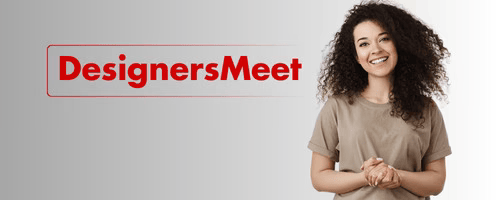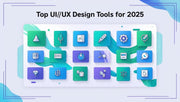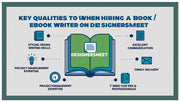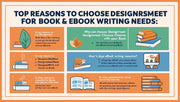In the rapidly evolving world of UI/UX design, having the right tools is essential for creating efficient, innovative, and user-friendly digital products. With 2025 bringing new technologies and design demands, staying updated with the best tools can elevate your workflow and output.
This blog explores the top tools every UI/UX designer should consider using in 2025.
1. Figma — Collaborative Interface Design
Figma continues to dominate as a cloud-based design and prototyping tool. It allows multiple designers and stakeholders to collaborate in real-time, streamlining the design process and feedback cycles.
Keyword Highlight: Figma design tool, collaborative UI design, cloud-based prototyping
2. Adobe XD — Powerful UX Design Platform
Adobe XD offers robust features for designing, prototyping, and sharing interactive experiences. Its seamless integration with other Adobe Creative Cloud apps makes it ideal for teams that rely on Adobe’s ecosystem.
Keyword Highlight: Adobe XD features, UX design software, interactive prototyping
3. Sketch — Vector-Based UI Design
Sketch remains popular among Mac users for its vector editing capabilities and extensive plugin ecosystem. It's perfect for creating high-fidelity designs and UI components.
Keyword Highlight: Sketch design software, vector UI design, Sketch plugins
4. InVision — Prototyping and Collaboration
InVision provides tools for prototyping, user testing, and design collaboration. Its user-friendly interface helps teams gather feedback and iterate quickly.
Keyword Highlight: InVision prototyping tool, design collaboration software, user testing
5. Axure RP — Advanced Prototyping
Axure RP offers powerful features for creating detailed, interactive prototypes with complex logic and dynamic content, ideal for UX professionals handling sophisticated projects.
Keyword Highlight: Axure RP features, interactive prototyping tool, UX prototyping
6. Miro — Online Whiteboard for Design Teams
Miro provides a versatile online whiteboard for brainstorming, mapping user journeys, and planning design workflows collaboratively.
Keyword Highlight: Miro collaboration tool, online whiteboard, design brainstorming
7. Zeplin — Design Handoff Tool
Zeplin bridges the gap between designers and developers by generating specs, assets, and style guides automatically from design files.
Keyword Highlight: Zeplin design handoff, developer collaboration tool, design specs automation
8. Adobe Photoshop and Illustrator
While mostly used for graphic design, Photoshop and Illustrator remain essential for UI/UX designers needing custom graphics, icons, or detailed visual elements.
Keyword Highlight: Photoshop for UI design, Illustrator vector graphics, custom UI assets
9. UserTesting — User Feedback Platform
UserTesting helps designers gain real-time feedback from target users through recorded sessions, surveys, and analytics to validate design decisions.
Keyword Highlight: UserTesting feedback tool, user research platform, design validation
10. Hotjar — Behavior Analytics
Hotjar offers heatmaps, session recordings, and surveys to analyze user behavior on websites and apps, providing insights to improve UX.
Keyword Highlight: Hotjar analytics, user behavior tracking, UX improvement tools
Conclusion
The right tools can dramatically improve your UI/UX design workflow, collaboration, and user satisfaction. Whether you’re prototyping with Figma or gathering user insights with UserTesting, adopting these top tools in 2025 will keep your designs innovative and user-centered. At DesignersMeet.com, we help designers choose and master the best tools to excel in their craft.




